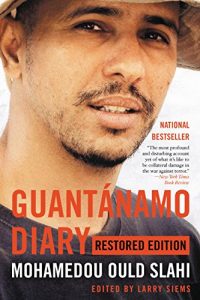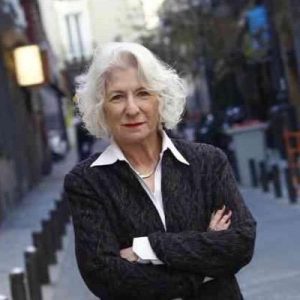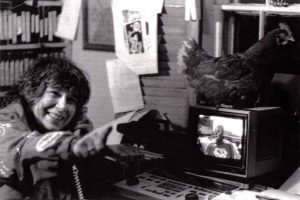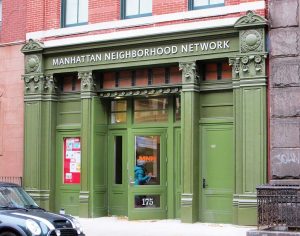Podcast: Play in new window | Download
Guantanamo Diary: Mohamedou Ould Slahi
The American offshore prison camp in Guantánamo, Cuba is still operating. After the attacks on September 11, 2001, it was set up as a place where neither American or international law would apply and where prisoners could be brought, tortured, detained forever, and never charged with a crime. Ten years ago, former President Obama promised to close the offshore prison when he ran for office. It remains up and running to this day. Mohamedou Ould Slahi spent 18 years of his life there. He was an electrical engineer from Mauritania in Africa and educated in Germany. He was 32 years old when he was apprehended in his home, taken to Jordan where he was tortured, then to Afghanistan, then to Guantanamo and 16 years later at age 48, he was released. He walked out of Guantanamo Bay Prison in October 2016 without being charged with a crime and returned to his native Mauritania.
While in prison in 2005 he wrote a memoir, in English, one of his four languages. His attorney Nancy Hollander had asked him to do it and she finally got it declassified in 2012 but with heavy redactions. It was made into a book, titled Guantánamo Diary, and published in 2015 and became an international bestseller.
In it, he describes how he was tortured in ways personally approved by then Defense Secretary Donald Rumsfeld. Torture is a criminal act under both US and international law. As many know, Rumsfeld has yet to be prosecuted.
Guest – Mohamedou Ould Slahi joins hosts from his native country of Mauritania where he is a writer. He is the author of Guantanamo Diary.
Guest – Attorney Nancy Hollander has been a member of the firm Freedman Boyd Hollander Goldberg Ives & Duncan, P.A. since 1980 and a partner since 1983. Her practice is largely devoted to criminal cases, including those involving national security issues. She has also been counsel in numerous civil cases, forfeitures and administrative hearings, and has argued and won a case involving religious freedom in the United States Supreme Court. Ms. Hollander also served as a consultant to the defense in a high profile terrorism case in Ireland, has assisted counsel in other international cases and represents two prisoners at Guantanamo Bay Naval Base. Nancy is co-author of WestGroup’s Everytrial Criminal Defense Resource Book, Wharton’s Criminal Evidence, 15th Edition, and Wharton’s Criminal Procedure, 14th Edition. She has appeared on national television programs as PBS Now, Burden of Proof, the Today Show, Oprah Winfrey, CourtTV, and the MacNeill/Lehrer News Hour.
—-
Manhattan Neighborhood Network Supreme Court Case
Is a public-access TV channel run by private nonprofit corporation subject to the First Amendment? The Supreme Court will consider that question in a case involving the Manhattan Neighborhood Network or MNN. In 1991 MNN was designated to operate as a public-access channel in New York City. The Manhattan Borough President has no control over MNN but does pick two of its thirteen board members.
In 2012 Jesus Melendez, an occasional contributor to MNN, was suspended for trying to attend a board meeting. His associate Deedee Halleck then videoed him outside talking about the situation. MNN banned the video from airing. Melendez and Deedee brought a First Amendment claim against MNN asking if the network is a state actor for purposes of their First Amendment rights. The district court said no, noting that, while it was a close call, other circuits had concluded that privately run public-access networks were not state actors.
The Supreme Court hasn’t directly weighed in on this question although Justice Anthony Kennedy, in a 1996 concurrence in a case dealing with laws regulating content on public-access channels, wrote they should be considered state actors who run public fora and thus be subject to the First Amendment. Justice Clarence Thomas disagreed in his concurrence, writing that “franchising authorities require cable operators to create public access channels, but nothing in the record suggests that local franchising authorities take any formal easement or other property interest in those channels that would permit the government to designate that property as a public forum.”
Defenders of MNN claim, that while it’s possible that some public-access channels could be rightly called state actors, the Court should take the case to clarify the state-actor test and to review the Second Circuit’s unnecessarily broad opinion.
Guest – Deedee Halleck one of the plaintiffs in this case and among the top media activists. She’s co-founder of Paper Tiger Television and also the Deep Dish Satellite Network, the first grass roots community television network. She is Professor Emerita in the Department of Communication at the University of California at San Diego.
Guest – Attorney Paul W. Hughes, a partner in the law firm Mayer Brown’s appellate and Supreme Court practice. Paul has handled more than 200 appellate matters, more than 125 of which were in the U.S. Supreme Court. In 2017The American Lawyer named Hughes “Litigator of the Week” in connection with his immigration work.



